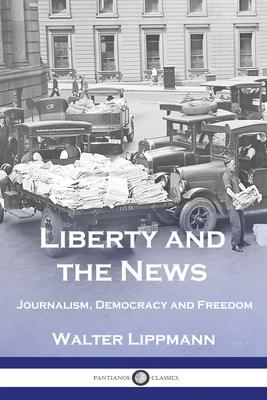Walter Lippmann's poignant analysis of the news media, its relationship to democracy, and the exercise of personal liberty and free thought, remains a classic of its field.
Although brief and more than a century old, Lippmann's examination of the media and its influence upon democratic government in the United States remains valuable. This title consists of three essays, all of which revolve around the relationship between the news media, the public, and the government. In the assessment of Lippmann, the media became a mouthpiece of the government during World War I; an entity which seeks not to simply report events, but to instruct and influence public opinion in a manner beneficial to the nation's government.
Such circumstances are directly against the idea of a free press, and this usurpation is what Lippmann condemns in these essays. How and to what extent the media is in thrall to the state, and how this connection affects the quality and veracity of its news reports, remain poignant questions in the modern day. Thus the pointed criticisms and constructive suggestions expressed in this book retain relevance and importance, to students and individuals interested in how the news is created, and how its realities conflict with its ideals.
